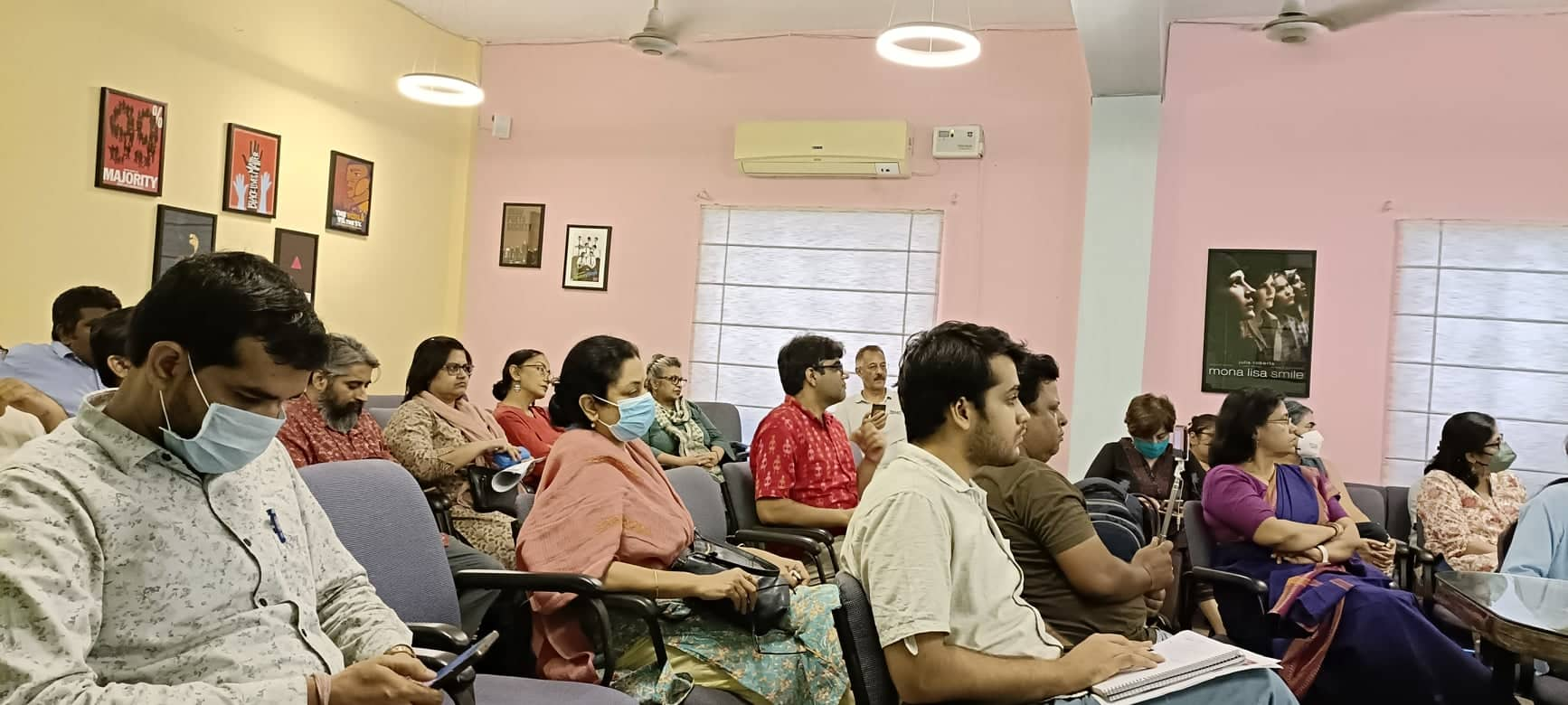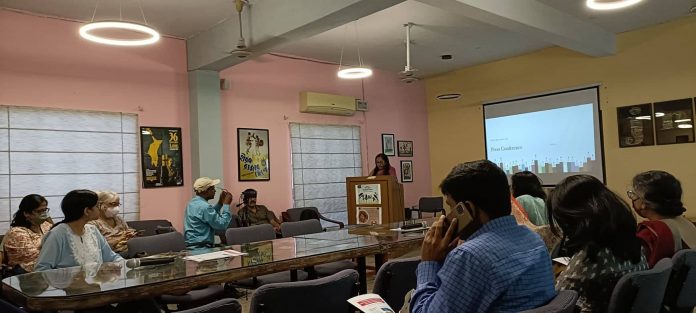“National Education Policy facilitates exclusion of students from marginalized groups, dismantles their right to education.”
By Aatika S. | TwoCircles.net
The Jawaharlal Nehru University Teachers Association has called for the university’s withdrawal from UGC-NTA common entrances (CUET) for all programs of study. The Teachers Association raised a host of issues including the severe marginalization caused by the online mode of education, the structural flaws of the National Education Policy (NEP), truncated yearly semesters, loss of admission seats, underutilization of research funds, delay in admission procedure, hefty loss of teaching hours et al. According to a few facts from the JNUTA data, there has been a loss of 378 Ph.D. seats, as well as 288-192 hours of teaching in 2021-22.
Bishnupriya Paul, president JNUTA and professor at the School of Arts and Aesthetics, JNU detailed a list of grievances jointly faced by the teachers and the students. She highlighted how the Common University Entrance Test–CUET, implemented by the central government at all levels of university entrance examinations, has led to a mounting crisis and waste of resources. Moreover, no admission under UG, PG, or Ph.D. has taken place so far under the new system.
The situation is similar for the part-time certificate and diploma courses. The time of CUET-PG examinations is also running behind the UG schedule.
Solely MCQ-based entrance is not Globally Accepted Practice
There has been no announcement of the academic calendar so far creating mass confusion and panic. This is even though the largest seat share is for entry into postgraduate programs. The faulty system has also compelled the faculty to adopt academically invalid practices.
The situation has also considerably worsened after the recent implementation of MCQ-based exams for entry into research programs. According to the JNUTA report, there is no acceptability of a solely MCQ-based entrance procedure anywhere in the world.
No Clarity when UG, Ph.D Admission will Start
The report by the JNUTA highlighted many lacunas in the framework in detail.
According to the report, ‘It remains unclear as to when admissions to JNU will start and when classes for the UG program will begin.’ It is the same for the PG application. The worst affected is the Ph.D. program as the longest duration admissions are at the research level in JNU.
In August, the National Testing Agency (NTA) reneged on its undertaking to JNU as well as twenty other central universities, from conducting a PhD-CUET. Instead, NTA asked all the universities at the last minute to conduct their examinations as was being done before. The policy is marred by many similar issues that have led to an inordinate delay in the admission process. The situation has worsened with the mushrooming of unaffordable private universities, systematic destruction of internal statutory bodies of many universities, as well as ongoing protests in many universities against arbitrary imposition of fee hikes that directly impact the right to education. On top of this, the continuing suppression of dissent by the government has completely rendered the idea of education moot.
Half of JNU Students Come from Rural Areas
According to the JNUTA, 50% of the students currently studying at JNU come from rural areas and 47% from families with a monthly income of less than Rs. 12,000 or even less. Women students constitute around 45% of the populace. The implementation of drastic criteria sets to impact them the most. There is widespread fear that such measures are ultimately leading to the privatisation of education in the name of self-financing models. There has been a drastic fall in the quality of teaching, student-teacher relationship, quality of learning, and the academic and overall environment of the university.
UGC-NET Exams of 80 Subject Hasn’t been Held
To add to the misery of students and professors, the UGC-NET examination for over eighty subjects has not been held for close to fifteen months. Although the UGC-JRF examination is increasingly being pushed by the university administration and the government as the route to Ph.D. admission.
The exam has also been delayed indefinitely many times, especially since the pandemic and isn’t being conducted twice a year as per the rule. Along with this, JRF imposes an age limit hence many are rendered ineligible for higher education by such absurd rules. The structure enhances the deep caste and gender fault lines of the Brahmanical Indian nation.
Students from Marginalized Groups Worst Sufferers
The entire situation has led to extreme uncertainty, stress, and marginality amongst the students. The high levels of despondency reflect an undoing of intellectual and academic rigor. The CUET framework combined with the onslaught of NEP-driven online education has increased the barriers to the fulfillment of education and development.
Many students belonging to marginalised communities end up as the worst sufferers of such oppressive changes. They battle manifold social and economic issues to avail education while continuously being discriminated against and ostracized.
Denying Marks to Reserved Category Students in viva-voice for Ph.D.
For instance, JNU teachers have been repeatedly accused of deliberately marking reserved category students extremely low marks in the viva-voice for Ph.D. admission. Despite protests on multiple occasions by the students, the administration is yet to implement the recommendations of the Thorat and Nafey Committees that would ensure basic levels of parity.
Reduction in fellowships for SC, ST
The role of research-led public institutions like JNU should be inclusive and affordable education. However, over time it has only seen a decrease in the number of fellowships and scholarships especially meant for SC, ST, and other minority students, delay in disbursal of research funding, dismantling of infrastructure, and an absolute quelling of students’ dissent.

It is a cause of alarm that the situation remains more or less true for all the other universities across the country that opted for the CUET as mandated by the NEP. The ‘one nation, one exam’ policy of CUET has disrupted the academic process and intellectual rigor of all participating central universities due to poor planning by the UGC and NTA.JNUTA allege that CUET entails the erosion of university autonomy and is an evisceration of the University Acts along with severely impacting faculty hiring and promotions.
“9 in 10 women assistant professors are due for promotions. Reservations for OBC, PH, and ST have not been fulfilled. A higher proportion of faculty under the PH, SC, and ST category has not been promoted either,” said the JNUTA report.
There is also the loss of the multidisciplinary character of many courses. The release also mentions how with unsynchronized semesters, students in two intersecting semesters cannot opt for the entire range of courses being offered. The new system of CUET-NEP would ensure that many students are permanently pushed out of the education system.
(Aatika S. is a fellow at the SEEDS-TCN Mentorship Program.)


